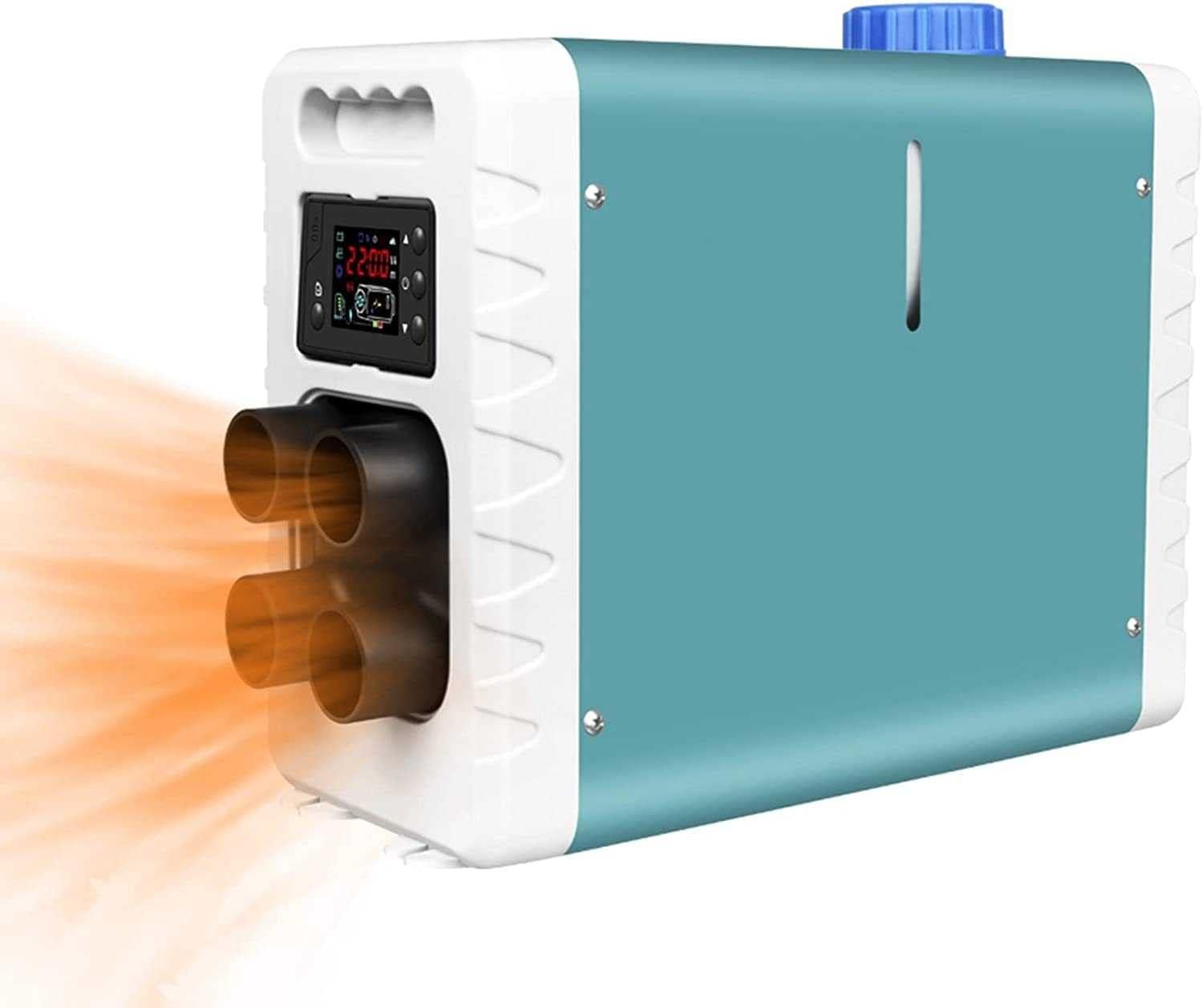So, you’ve got your eye on a 5kW diesel heater to keep your space warm and cozy. But before you make the purchase, it’s important to know if that heater is the right fit for your needs. Lucky for you, calculating the heating capacity required for a specific space is easier than you might think. By considering factors like the size of the space, the insulation, and the desired temperature, you’ll be able to determine if a 5kW diesel heater is up to the task of keeping you comfortably warm. Let’s dive into the details and figure it out together!
Determining the Heating Load
Understanding the Heating Load
When it comes to determining the heating load for a specific space, it is essential to understand what heating load means. The heating load refers to the amount of heat required to maintain a comfortable indoor temperature in a given area. It is crucial to accurately calculate the heating load to ensure that the chosen heating system can meet the space’s heating demands effectively.
Factors Affecting the Heating Load
Several factors can influence the heating load of a space. These factors need to be taken into account when calculating the heating load to ensure accurate results. Some of the key factors include:
- Size of the space: The size of the space plays a significant role in determining the heating load. Larger spaces generally require more heating capacity compared to smaller areas.
- Insulation: The insulation of the space can greatly impact the heating load. Well-insulated areas retain heat more effectively, reducing the required heating capacity.
- Windows and doors: The number, size, and quality of windows and doors in the space can affect heat loss. Areas with poor-quality windows and doors or a significant number of them may have higher heating loads.
- Ceiling height: Spaces with high ceilings require more heating capacity as heat tends to rise and accumulate in these areas.
- Location and climate: The geographical location and climate of the space also play a crucial role. Colder climates or areas with harsh winters will require greater heating capacity compared to milder climates.
- Occupancy and usage: The number of occupants in the space and the type of activities performed can affect the heating load. Spaces with high occupancy or activities that generate significant heat, such as commercial kitchens, may require higher heating capacity.
Calculating the Heating Load
To calculate the heating load accurately, several steps need to be taken into consideration. These steps ensure that all relevant factors are considered, providing a more precise estimation of the required heating capacity. The following steps should be followed when calculating the heating load:
- Determining the volume of the space: The first step is to calculate the volume of the space by multiplying the floor area by the ceiling height.
- Calculating the air change rate: The air change rate represents the number of times the air within the space is replaced within an hour. The air change rate depends on factors such as occupancy, usage, and ventilation requirements.
- Factoring in insulation: Insulation values need to be taken into account when calculating the heating load. Insulation materials and their respective R-values should be considered to determine the thermal resistance of the area.
- Accounting for windows and doors: The size, number, and quality of windows and doors in the space should be considered. The thermal properties of windows and doors influence heat loss, and these factors need to be accounted for in the calculations.
- Considering ceiling height: The height of the ceiling affects the overall volume of the space and should be considered when calculating the heating load.
- Adjusting for location and climate: The geographical location and climate of the space can affect the heating load. Adjustments should be made to account for extreme temperatures or weather conditions.
- Considering occupancy and usage: The number of occupants and the type of activities in the space should be considered. Areas with high occupancy or activities that generate heat may require additional heating capacity.
Determining Heater Capacity
Understanding Heater Capacity
Once the heating load has been accurately determined, it is crucial to understand what heater capacity means. Heater capacity refers to the amount of heat a heater can produce or supply to a space. Matching the heater capacity to the heating load is essential to ensure that the chosen heater can effectively meet the heating demands of the specific area.
Factors to Consider
Several factors should be considered when determining the appropriate heater capacity. These factors help ensure that the selected heater is suitable for the heating load requirements. Some factors to consider when selecting heater capacity include:
- Size of the space: The size of the space is a key factor in determining the heater capacity. A larger space will generally require a heater with a higher capacity.
- Insulation: The insulation of the space affects the heater capacity needed. Well-insulated areas may require a lower capacity heater, while poorly insulated areas may need a higher capacity heater.
- Efficiency of the diesel heater: The efficiency of the chosen diesel heater should be taken into consideration. More efficient heaters can provide the required heating capacity with less energy consumption.
Matching Heater Capacity to Heating Load
To ensure the heater capacity matches the heating load accurately, several steps can be taken. These steps help in selecting a heater that can effectively meet the heating demands of the specific space. They include:
- Selecting a heater with sufficient capacity: The heater capacity should be equal to or slightly higher than the calculated heating load to ensure optimal performance.
- Using a heat load calculation tool: Heat load calculation tools can be utilized to determine the appropriate heater capacity based on the specific heating load requirements. These tools consider various factors and provide accurate recommendations.
- Consulting heating professionals: Seeking advice from heating professionals or experts can be beneficial when determining the appropriate heater capacity. They have the knowledge and expertise to assess the specific requirements and recommend suitable heater options.
Determining the Required 5kW Diesel Heater
Convert Heating Load to kW
Converting the heating load to kilowatts (kW) is necessary to determine the appropriate heater capacity. The following steps can be followed to convert the heating load to kW:
- Converting heating load to British Thermal Units (BTU): Multiply the calculated heating load by the conversion factor of 3.412 to convert to BTUs.
- Converting BTU to kilowatts (kW): Divide the converted BTU value by 3412 to obtain the heating load in kilowatts.
Considering Safety Factors
When selecting a 5kW diesel heater, it is crucial to consider safety factors. Ensuring that the heater capacity exceeds the calculated heating load provides a safety buffer, ensuring the heater can handle unexpected fluctuations or variations in heat requirements.
Selecting a 5kW Diesel Heater
Based on the converted heating load and considering safety factors, selecting a 5kW diesel heater can be appropriate. The 5kW heater capacity should provide sufficient heat to meet the calculated heating load, while the diesel fuel option offers efficient and reliable heating.
Accounting for Adjustment Factors
It is important to consider any adjustment factors that may impact the heater capacity requirements. Factors such as future expansion plans, specific heating needs, or any other requirements unique to the space should be taken into account when selecting the 5kW diesel heater.
Considering Future Expansion
When determining the required 5kW diesel heater, future expansion should be taken into consideration. Anticipating potential increases in heating needs due to expansion plans or changes in occupancy can help ensure the selected heater can accommodate future requirements. Selecting a 5kW heater as a starting point provides flexibility for potential future expansions.
Conversion of Heating Load to kW
Converting Heating Load to British Thermal Units (BTU)
Converting the heating load to British Thermal Units (BTU) is the first step in converting it to kilowatts. Multiply the calculated heating load by the conversion factor of 3.412 to obtain the load in BTU.
Converting BTU to Kilowatts (kW)
To convert the BTU value to kilowatts (kW), divide the converted BTU value by 3412. This conversion provides the heating load value in the desired unit, which can then be used to determine the appropriate heater capacity.
Considering Future Expansion
Anticipating Future Heating Needs
When selecting a heater, it is important to anticipate future heating needs. Considering factors such as potential changes in occupancy, expansion plans, or additional heating requirements can help ensure that the chosen heater can accommodate future needs.
Selecting a 5kW Heater as a Starting Point
A 5kW heater can serve as a suitable starting point when considering future expansion. While it may meet the current heating load requirements, the additional capacity provides room for future adjustments or expansions. This way, the heater can continue to meet the heating demands even as the space and heating needs evolve.
In conclusion, determining the heating load and matching it to the appropriate heater capacity is crucial for maintaining a comfortable indoor temperature. By taking into account factors such as space size, insulation, windows and doors, ceiling height, location, climate, occupancy, and usage, accurate calculations can be made to determine the required heating load and heater capacity. Considering safety factors, conversion of heating load to kW, and future expansion plans play a vital role in selecting a 5kW diesel heater that can effectively meet the heating needs of the space. Consulting heating professionals and utilizing heat load calculation tools can further assist in making informed decisions. So, for your specific space, calculating the heating capacity required with a 5kW diesel heater can be done accurately using these guidelines.


